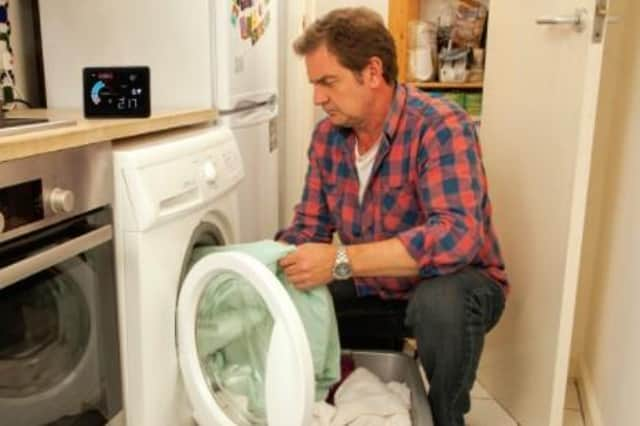How smart meters could play a key role in the home technology revolution after COP26


She unconsciously fidgeted at the level of attention she was commanding from the audience in the room. But her words to delegates back in 2018 during COP24 were precise, measured and calm.
“The first thing I have learned is that you are never too small to make a difference,” said the young Swede Greta Thunberg in a short but powerful phrase that has been widely used since.
What rarely appears, though, is what she said next, when she added: “Imagine what we could all do together if we really wanted to.”
Which is where what we do in our own lives comes in. Together, each small action makes a difference.
SMART METER INSTALLATION
For most of us that begins at home. A simple action, such as requesting a smart meter installation from our energy supplier to help lay the foundations for a cleaner, greener energy system, is just one way to play an active part in the solution.
That’s because smart meters are a first step in creating a smart energy system. A system that could help us better plan the energy we need nationally, and that can pinpoint where faults are occurring more quickly. A system that will – in conjunction with smart meters – help consumers to take action to lessen their carbon footprint.
HABITS
Other good habits, such as turning down the thermostat, switching TVs and game consoles off rather than leaving them on stand-by, can all make a contribution to our energy saving.
These changes can then be tracked in near-real time with just a glance at a smart meter, available at no extra cost from our energy suppliers.
Even using white goods, such as washing machines, off-peak on cheaper tariffs can contribute to not only cutting down on carbon, but also helping us save money on bills while making better use of our resources.
TECHNOLOGY
In the future, technology may completely change how we interact with both energy, and our homes. For younger generations, new houses may replace resource heavy bricks and mortar with low-cost 3D printed, carbon-friendly homes.
Technology could become smarter – washing machines may never break down again as The Internet of Things learns how to predict if they may have an issue and automatically order replacement parts.
Other technologies have been predicted that re-imagine how even furniture may adapt to our needs on the fly.
Smart fridges could produce a shopping list for you as stocks run low, possibly even placing the orders. Linked health apps might even influence what you eat, suggesting plant-based or dairy-free alternatives that are linked to supermarket reward schemes, as suppliers are encouraged to shift consumer eating and spending habits.
Dishwashers may learn not to kick into action until the household’s energy tariff is at its lowest – or greenest – drawing from renewable supplies or from battery storage, either in the form of a local community network or even our individual electric cars parked outside.
Medical interventions may be triggered by energy use in the homes of the most vulnerable, signalled by smart meters with user consent. Research into this possibility is already underway.
SMART METERS AND TARIFFS
In the future, a smart energy system may even suggest the most appropriate tariffs to meet your needs and open up the potential of future reward for flexible usage.
SMART METERS AND INFRASTRUCTURE
Advances such as smart meters are among those technologies that make it possible for Britain to integrate intermittent renewable energy sources, such as solar and wind, fully and efficiently.
Just last year, renewables met 97 per cent of Scotland’s electricity needs with a target to be entirely green within grasp.
That helps in making progress on transport, where building for an electric future is underway, or in home energy, where policymakers see huge gains to be made in cutting emissions and ending fuel poverty – all key areas for debate at the COP26 world leaders’ gathering to be held in Glasgow next month.
SMART METERS – HOME INTEGRATION
It is also where our consumer choices at home can be influenced. A smart energy system will make it more efficient to charge our cars and integrate solar panels or heat pumps, all helping to reduce bills and our carbon footprints. It could even lead to ways for communities to generate their own energy together.
In the coming days and weeks as nations descend upon Glasgow, we might learn that no country is too small to make a difference.
Imagine then how making even small changes in our lifestyles and in our homes or in embracing new technologies such as smart meters could help us all tackle climate change – together.
Join the energy revolution and contact your energy supplier to request a smart meter. For more information visit smartenergygb.org